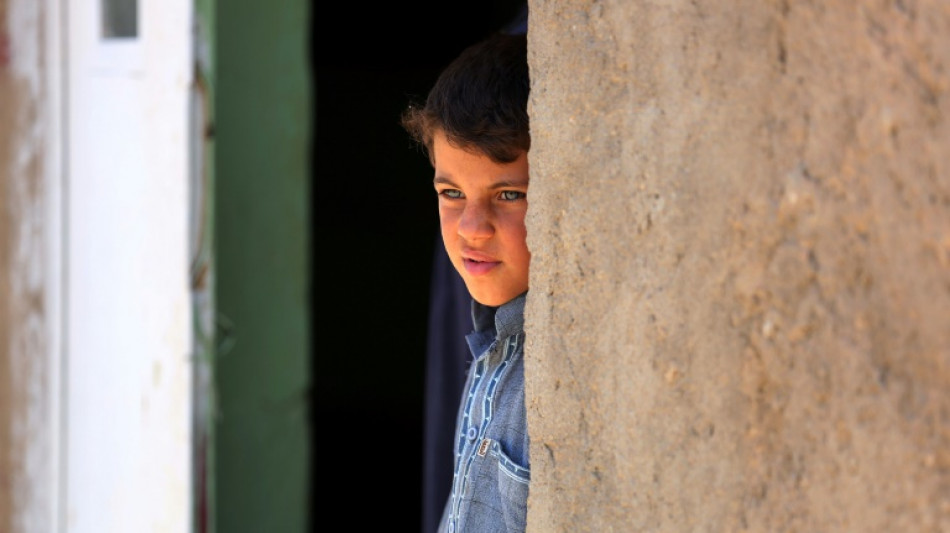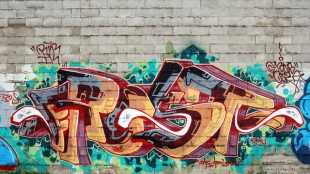
-
 EU warns Meta it must open up WhatsApp to rival AI chatbots
EU warns Meta it must open up WhatsApp to rival AI chatbots
-
Scotland spoil Italy's T20 World Cup debut with big win

-
 Israeli president says 'we will overcome evil' at Bondi Beach
Israeli president says 'we will overcome evil' at Bondi Beach
-
Munsey leads Scotland to 207-4 against Italy at T20 World Cup

-
 Japan restarts world's biggest nuclear plant again
Japan restarts world's biggest nuclear plant again
-
Bangladesh poll rivals rally on final day of campaign

-
 Third impeachment case filed against Philippine VP Duterte
Third impeachment case filed against Philippine VP Duterte
-
Wallaby winger Nawaqanitawase heads to Japan

-
 Thailand's Anutin rides wave of nationalism to election victory
Thailand's Anutin rides wave of nationalism to election victory
-
Venezuela's Machado says ally kidnapped by armed men after his release

-
 Maye longs for do-over as record Super Bowl bid ends in misery
Maye longs for do-over as record Super Bowl bid ends in misery
-
Seahawks' Walker rushes to Super Bowl MVP honors

-
 Darnold basks in 'special journey' to Super Bowl glory
Darnold basks in 'special journey' to Super Bowl glory
-
Japan's Takaichi may struggle to soothe voters and markets

-
 Seahawks soar to Super Bowl win over Patriots
Seahawks soar to Super Bowl win over Patriots
-
'Want to go home': Indonesian crew abandoned off Africa demand wages

-
 Asian stocks track Wall St rally as Tokyo hits record on Takaichi win
Asian stocks track Wall St rally as Tokyo hits record on Takaichi win
-
Bad Bunny celebrates Puerto Rico in joyous Super Bowl halftime show

-
 Three prominent opposition figures released in Venezuela
Three prominent opposition figures released in Venezuela
-
Israeli president says 'we shall overcome this evil' at Bondi Beach

-
 'Flood' of disinformation ahead of Bangladesh election
'Flood' of disinformation ahead of Bangladesh election
-
Arguments to begin in key US social media addiction trial

-
 Dr. Jonathan Spages Expands Diabetes Reversal Practice Across New States, Adds Clinical Team to Meet Growing Demand
Dr. Jonathan Spages Expands Diabetes Reversal Practice Across New States, Adds Clinical Team to Meet Growing Demand
-
Agronomics Limited Announces Net Asset Value Calculation as at 31 December 2025

-
 UK-Based Vesalic Limited Emerges from Stealth with Landmark Discovery of Potential Non-CNS Driver of Motor Neuron Diseases, including ALS, and Breakthrough Therapeutic and Diagnostic Opportunities
UK-Based Vesalic Limited Emerges from Stealth with Landmark Discovery of Potential Non-CNS Driver of Motor Neuron Diseases, including ALS, and Breakthrough Therapeutic and Diagnostic Opportunities
-
Gotterup tops Matsuyama in playoff to win Phoenix Open

-
 New Zealand's Christchurch mosque killer appeals conviction
New Zealand's Christchurch mosque killer appeals conviction
-
Leonard's 41 leads Clippers over T-Wolves, Knicks cruise

-
 Trump says China's Xi to visit US 'toward the end of the year'
Trump says China's Xi to visit US 'toward the end of the year'
-
Real Madrid edge Valencia to stay on Barca's tail, Atletico slump

-
 Malinin keeps USA golden in Olympic figure skating team event
Malinin keeps USA golden in Olympic figure skating team event
-
Lebanon building collapse toll rises to 9: civil defence

-
 Real Madrid keep pressure on Barca with tight win at Valencia
Real Madrid keep pressure on Barca with tight win at Valencia
-
PSG trounce Marseille to move back top of Ligue 1

-
 Hong Kong to sentence media mogul Jimmy Lai in national security trial
Hong Kong to sentence media mogul Jimmy Lai in national security trial
-
Lillard will try to match record with third NBA 3-Point title

-
 Vonn breaks leg as crashes out in brutal end to Olympic dream
Vonn breaks leg as crashes out in brutal end to Olympic dream
-
Malinin enters the fray as Japan lead USA in Olympics team skating

-
 Thailand's Anutin readies for coalition talks after election win
Thailand's Anutin readies for coalition talks after election win
-
Fans arrive for Patriots-Seahawks Super Bowl as politics swirl

-
 'Send Help' repeats as N.America box office champ
'Send Help' repeats as N.America box office champ
-
Japan close gap on USA in Winter Olympics team skating event

-
 Liverpool improvement not reflected in results, says Slot
Liverpool improvement not reflected in results, says Slot
-
Japan PM Takaichi basks in election triumph

-
 Machado's close ally released in Venezuela
Machado's close ally released in Venezuela
-
Dimarco helps Inter to eight-point lead in Serie A

-
 Man City 'needed' to beat Liverpool to keep title race alive: Silva
Man City 'needed' to beat Liverpool to keep title race alive: Silva
-
Czech snowboarder Maderova lands shock Olympic parallel giant slalom win

-
 Man City fight back to end Anfield hoodoo and reel in Arsenal
Man City fight back to end Anfield hoodoo and reel in Arsenal
-
Diaz treble helps Bayern crush Hoffenheim and go six clear


20 years after US invasion, war-scarred Iraq faces uncertain future
Iraq on Monday marked 20 years since the start of the US-led invasion that toppled dictator Saddam Hussein, but no official celebrations were held.
The oil-rich country remains traumatised from the years of war, occupation and bloody sectarian turmoil that followed the operation launched on March 20, 2003.
A semblance of normalcy has returned but Iraq still battles a range of entrenched challenges, from political instability to poverty and rampant corruption.
Neighbouring Iran, the major Shiite power and arch-foe of the United States, now wields much influence in Iraq, whose Shiite majority was freed from the oppression of Sunni strongman Saddam.
Prime Minister Mohamed Shia al-Sudani, who is backed by a pro-Iranian coalition, at an event Sunday did not speak of the US invasion but only of the "fall of the dictatorial regime" of Saddam, who was caught, tried and executed.
At a Baghdad conference on the eve of the anniversary, Sudani said: "We remember the pain and suffering of our people in those years that were dominated by senseless wars and systematic sabotage."
The government planned no events to mark the anniversary, and Baghdad's streets on Monday looked busy as ever, with most people more focused on the holy fasting month of Ramadan due to start later this week.
"It's a painful memory" for the country, said Fadhel Hassan, 23, a journalism student. "There was a lot of destruction and too many victims -- innocent people, Iraqis and American soldiers."
The US march to war started under then-president George W. Bush and gained pace in the aftermath of the September 11, 2001 attacks on the United States by Osama bin Laden's militant group Al-Qaeda.
Bush, backed by British prime minister Tony Blair, argued that Saddam presented a major threat and was developing weapons of mass destruction, although none were ever found.
- 'Shock and awe' -
Operation Iraqi Freedom was launched with a ground invasion led by 150,000 US and 40,000 British forces, and the "shock and awe" bombing of strategic sites.
Within three weeks, Saddam's regime had fallen, and the invasion forces took control of the capital Baghdad on April 9.
TV footage beamed around the world soon showed US Marines toppling a giant statue of Saddam, and later Bush declaring the "Mission Accomplished" aboard an American warship.
But the invasion had sparked widespread disorder and looting, the chaos deepened by the US decision to disband the Iraqi state, ruling party and military apparatus.
The stated US drive to bring liberal democracy to Iraq was soon derailed by violence and sectarian conflict as Shiite militants battled with Sunni groups.
By the time US troops left in 2011, the war had claimed the lives of more than 100,000 Iraqi civilians, according to the Iraq Body Count group, while US losses reached nearly 4,500.
The bloodshed would give rise to the Sunni extremists of the Islamic State group whose jihadist "caliphate" brought new horrors across Iraq and Syria before its eventual defeat, after a US-led coalition returned to help fight them.
- 'Corruption pandemic' -
In today's Iraq, elections are held, political plurality is encouraged and free expression officially guaranteed.
But in practice, Iraqi politics remain chaotic and marred by sectarian and ethnic conflict.
Major anti-government protests erupted in late 2019, leading to yet more bloodshed in the streets.
Turnout was low for legislative elections in October 2021, which sparked further infighting and violence before a government was eventually formed a year later.
A third of Iraq's population lives in poverty, public services are largely absent, and the energy-rich country suffers frequent blackouts, especially in the extreme summer heat.
Nepotism and corruption remain rife in Iraq, where coveted posts in a bloated state sector are often gained through personal connections while youth unemployment is rampant.
Successive governments "have failed to fight corruption", laments Abbas Mohamed, a Baghdad engineer in his 30s. "We are going from bad to worse. No government has given anything to the people."
On Sunday, Sudani again pledged to "combat the pandemic of corruption".
But Baghdad day labourer Mohamed al-Askari, like many Iraqis, is struggling to keep alive any real hope.
"We rejoiced when the regime fell because we thought Iraq would improve," he said, "but so far we have only suffered."
H.E.Young--AMWN



